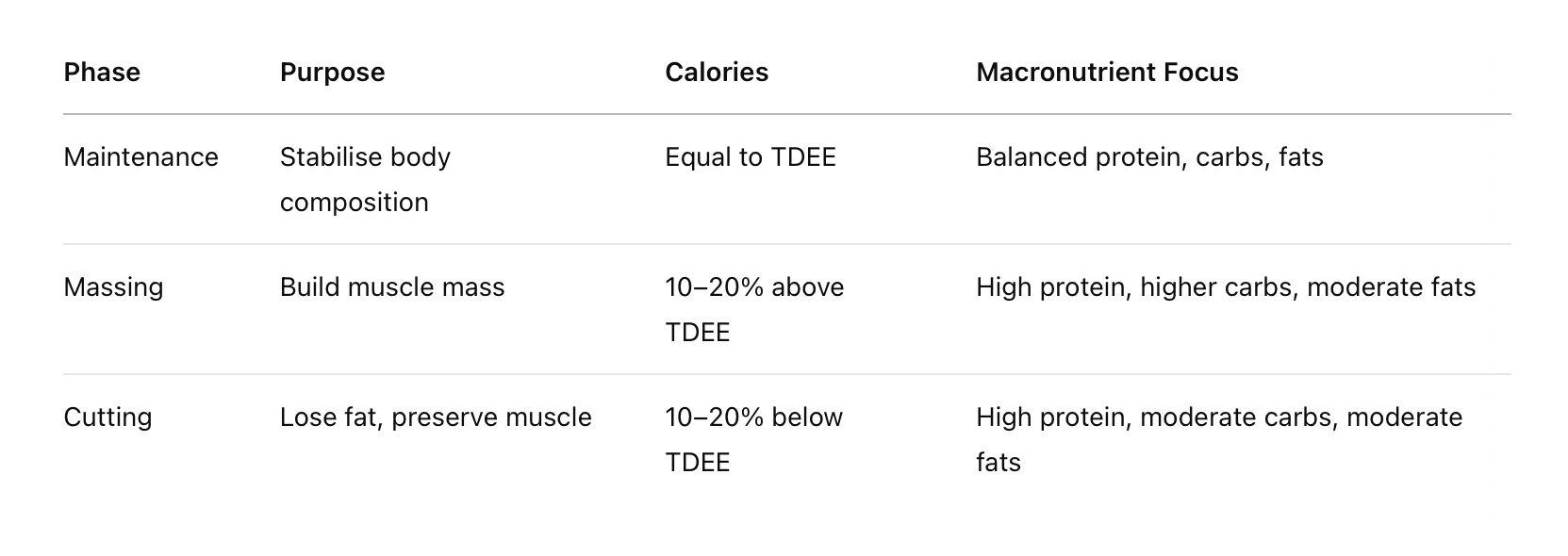Nutritional Periodization: Mastering Maintenance, Massing, and Cutting
May 02, 2025
If you’re serious about training, you know that success doesn’t just happen in the gym—it happens in the kitchen too. Nutritional periodization is a strategic approach to nutrition that aligns your dietary intake with your training goals. Whether you’re chasing muscle gain, fat loss, or performance optimisation, cycling through specific nutrition phases can dramatically improve your results.
In this article, we’ll break down the three key phases of nutritional periodization—maintenance, massing, and cutting—and how each one fits into your overall strategy for performance and physique.
What Is Nutritional Periodization?
Nutritional periodization is the practice of intentionally adjusting your calorie and macronutrient intake based on the current phase of your training or performance goal. Much like periodized training (which involves structured blocks of training intensity or focus), nutrition is cycled to support phases of muscle building, fat loss, or recovery.
Phase 1: Maintenance
The maintenance phase is your nutritional baseline. The goal here is to maintain your current body composition—no gain, no loss.
Key Characteristics:
-
Calories: Set to match your Total Daily Energy Expenditure (TDEE).
-
Macronutrients: Balanced intake of protein, carbs, and fats; protein remains a priority to support lean mass.
-
Purpose: Useful for recovery, performance maintenance, or between cutting and massing phases. It can also serve as a psychological break from dieting or surplus eating.
Use this phase to reset and recharge, especially after long bulking or cutting phases.
Phase 2: Massing (Bulking)
The massing phase is designed for muscle growth. You’ll intentionally eat in a caloric surplus to give your body the fuel it needs to build new muscle tissue.
Key Characteristics:
-
Calories: Typically 10–20% above maintenance levels.
-
Macronutrients:
-
High protein to support muscle repair.
-
Higher carbohydrates to fuel training.
-
Healthy fats at 20–30% of total intake.
-
-
Purpose: Supports hypertrophy, strength development, and muscle-building training blocks.
This is the phase where gains happen—but smart surplus management is key to avoid excessive fat gain.
Phase 3: Cutting
In the cutting phase, the goal shifts to reducing body fat while preserving as much lean muscle mass as possible. This phase is common in physique prep, summer cuts, or anytime someone wants to reveal their hard-earned muscle.
Key Characteristics:
-
Calories: 10–20% below maintenance to create a sustainable deficit.
-
Macronutrients:
-
Protein remains high to preserve muscle.
-
Carbohydrates may be reduced.
-
Fats kept adequate to support hormone function.
-
-
Purpose: Enhance muscle definition, lower body fat, and improve metabolic efficiency.
The best cutting phases are slow and steady—quick fixes often sacrifice hard-earned muscle.
Summary: Comparing the Phases

Practical Tips for Nutritional Periodization
1. Transition Gradually
Avoid extreme calorie swings when moving between phases. Sudden shifts can shock your body, disrupt hormones, and lead to poor outcomes like muscle loss or rapid fat gain.
2. Align with Your Training Cycle
Each phase should support your current training focus. For example:
-
Strength & hypertrophy blocks = Massing phase
-
Deloads or maintenance blocks = Maintenance phase
-
Fat loss or prep phases = Cutting phase
3. Track, Review, Adjust
Your body will adapt over time. Regular check-ins with measurements, biofeedback, and progress photos help determine if your nutrition is aligned with your goals.
Final Thoughts
Nutritional periodization is more than just eating more or less—it’s about precision, purpose, and performance. By intentionally rotating through maintenance, massing, and cutting phases, you create a sustainable, goal-driven path to body composition and performance optimisation.
Your diet should evolve with your training. Periodize with purpose, and results will follow.
